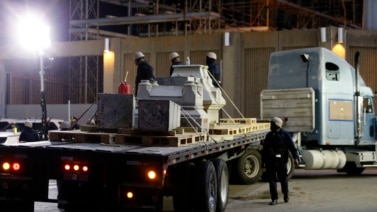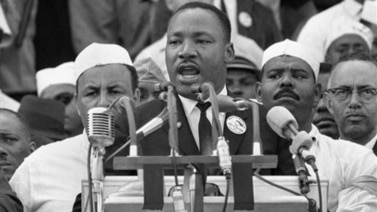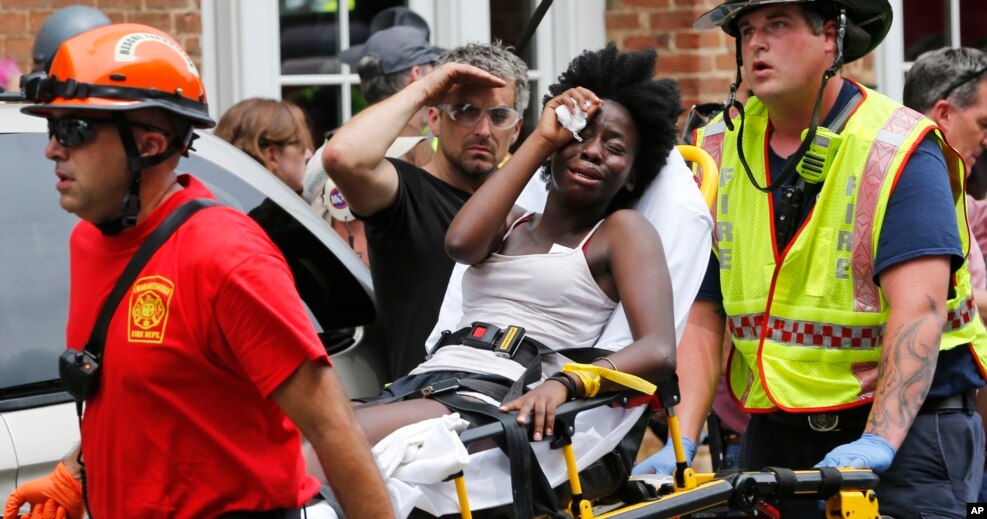
President Donald Trump spoke Monday about the weekend violence in Charlottesville, Virginia. He strongly criticized white supremacists and other hate groups.
A 32-year-old woman was killed Saturday and 19 people were injured when a man drove his car into a crowd of activists. They were protesting a white supremacist demonstration. Another 15 people were injured in fights between white supremacists and counter-demonstrators.
Later Saturday, Trump said “many sides” were responsible for the violence. But Monday, after criticism of that statement, Trump spoke again.
“Racism is evil, and those who cause violence in its name are criminals and thugs, including the KKK (Ku Klux Klan), neo-Nazis, white supremacists and other hate groups that are repugnant to everything we hold dear as Americans.”
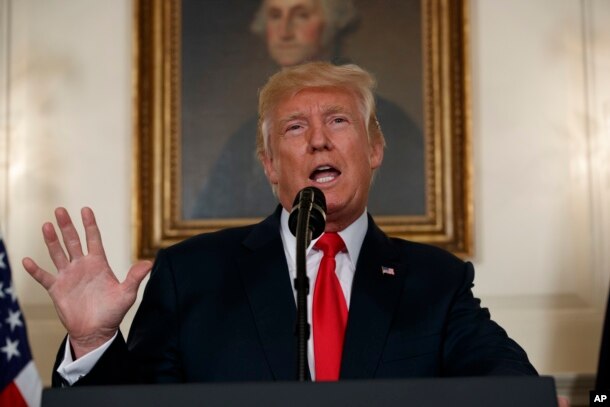
White nationalists, the KKK and others had gone to Charlottesville to protest the city’s decision to take down a monument. It was a statue of Robert E. Lee, an important Civil War general who fought for the southern states. The southern states were seeking to separate from the United States. Many find such monuments offensive because of the South’s support for slavery.
Man charged with using car to kill woman
James Alex Fields Jr. was charged with murder and other crimes in connection with the automobile incident. Police said he acted to kill and wound people with his car. The Associated Press and other news groups reported that Fields admired Adolph Hitler. Reports also said his social media presence suggested support for white nationalism.
Trump, a Republican, was not the only Trump administration official to criticize the violence in Charlottesville. Attorney General Jeff Sessions said Monday that the car attack in Charlottesville meets the definition of “domestic terrorism.”
Some criticized Trump for not immediately criticizing white supremacists in his first statements on the Charlottesville violence. Nancy Pelosi is the leader of the Democrats in the House of Representatives.
She said Trump’s 2016 presidential campaign had the support of, in her words, “the forces of bigotry and discrimination.”
It should not take two days for the president to criticize “murder and violence by Nazis and white supremacists,” Pelosi said.
Emotional battle over statues
There is hot debate about efforts to remove statues representing Confederate leaders. Such action is not only taking place in Charlottesville, but also in New Orleans, Louisiana and Lexington, Kentucky.
Some argue that taking down Civil War statues is denying history.
Pierre McGraw led a group in New Orleans that tried unsuccessfully to stop the removal of four Confederate statues from the city.
“People across Louisiana should be concerned over what will disappear next,” he said.
The city’s mayor, Mitch Landrieu, gave a speech defending the city’s action. He said, “Statues that honor slavery should not be permitted in a nation that long ago rejected slavery as the worst kind of hate.”
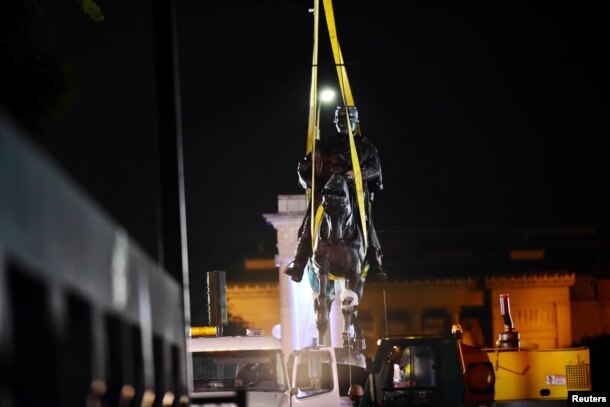
In Charlottesville, the home of the University of Virginia, officials are hoping to move past the weekend’s violence.
Frank Conner III is a top University of Virginia official.
He said, “The actions of those who visited evil upon us are nothing short of white nationalist and white supremacist terrorism intended to intimidate our community. They will not succeed. We will not surrender.”
Larry Sabato is a political science professor at the University of Virginia with a home on campus. Several hundred marchers carried burning sticks and shouted racist and pro-Nazi statements there on Friday night.
“My father fought in World War II against the Nazis, all the way to Berlin,” Sabato said. “I’m glad he’s not here decades later to see that hundreds of neo-Nazi thugs can march their way up the University of Virginia Lawn, past his son’s home, spouting racist and anti-Semitic slogans.”
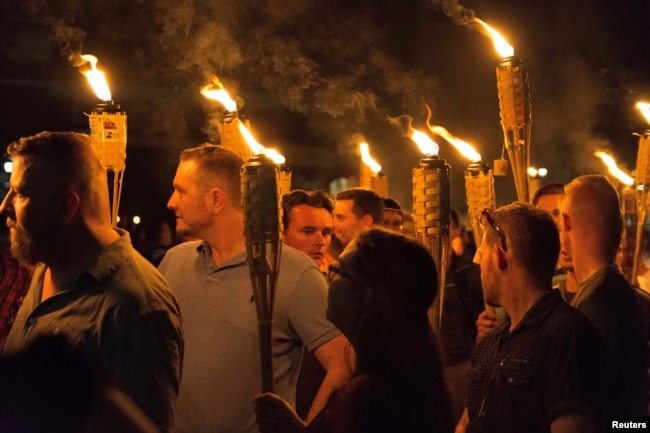
Sabato said he believes white nationalists felt supported by the president’s first statement because he did not directly criticize them for the violence.
Nghana Lewis teaches at Tulane University in New Orleans and has followed the battle over the city’s Confederate monuments.
She was asked what people outside the United States should know about these fights.
Lewis said while “there is much to admire about our country,” U.S. history is complex. She said America is still a “very young nation and still early in the process of undoing its history of slavery and racial discrimination.”
Battle with drug company head
The leader of America’s third largest drug company resigned from a federal advisory group Monday in connection with Trumps first response to Charlottesville. Kenneth Frazier said America’s leaders must reject those who say that one racial group is better than another.
Trump later criticized Frazier in a Twitter post.
Now that Ken Frazier of Merck Pharma has resigned from President's Manufacturing Council,he will have more time to LOWER RIPOFF DRUG PRICES!
— Donald J. Trump (@realDonaldTrump) August 14, 2017
I’m Caty Weaver.
And I’m Bruce Alpert
Bruce Alpert reported on this story for Learning English based on reports by Reuters, The Associated Press and other sources. Caty Weaver was the editor.
We want to hear from you. Write to us in the Comments Section and share your views on our Facebook Page.
Words in this Story
white supremacist - n. person who believes words are better than blacks and other races
evil - adj. morally bad
thug - n. a violent criminal
repugnant - adj. causing a strong feeling of dislike or disgust
admire - v. to think of highly of someone
intentional - adj. done in a way that is planned
intimidate - v. threaten someone
spouting - v. to say something
slogan - n. a word or phrase that is used by a group to attract attention

